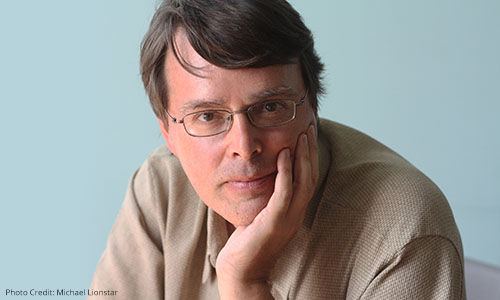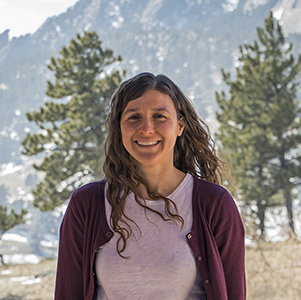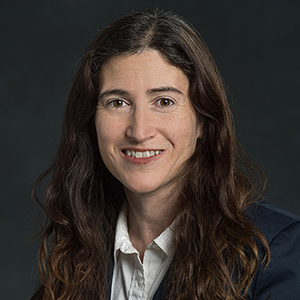Opening Keynote - Charles C. Mann
Sunday, August 7th
• 10:00 AM
 A Plant's-Eye View of History
A Plant's-Eye View of History
History is usually talked about as if it were exclusively a matter of people and ideas. But ever since the rise of agriculture, the human story has been as much about biology—and especially plant science—as it is about politics and economics. From the rise of modern Europe to the fall of imperial China, from the history of immigration to the accumulation of global carbon emissions, the course of our species has been driven by plants and plant diseases.
Don't miss a book signing with Charles, to follow the keynote presentation
Bio: Charles C. Mann is the author of
1493, a New York Times best-seller, and
1491, which won the U.S. National Academy of Sciences' Keck award for the best book of the year. A correspondent for
The Atlantic Monthly, Science, and
Wired, he has covered the intersection of science, technology, and commerce for many newspapers and magazines here and abroad, including
National Geographic, the
New York Times, Vanity Fair, and the
Washington Post. In addition to 1491 and 1493, he is the co-author of five other books, one of which is a young person's version of 1491 called
Before Columbus.
A three-time National Magazine Award finalist, he has received writing prizes from the American Bar Association, the American Institute of Physics, the Alfred P. Sloan Foundation, and the Margaret Sanger Foundation. In 2008 the American Geographical Society named him an Honorary Geographer.
His most recent book,
The Wizard and the Prophet: Two Remarkable Scientists and Their Dueling Visions to Shape Tomorrow's World, shows an incisive portrait of the two revolutionary twentieth-century scientists, Norman Borlaug and William Vogt, whose diametrically opposed views shaped our ideas about the environment, laying the groundwork for how people in the twenty-first century will choose to live in tomorrow's world.
Attend the author book signing after the keynote address.
"I was mesmerized by this book, and highly recommend it to all my family, friends, and colleagues. Charles C. Mann has written a brilliant, compelling, must-read book on two pioneering scientists of the 20th century. Mann writes about Borlaug and Vogt from their early childhoods to how they became the voices of agriculture and ecology, and how their insightful views can be used to help better manage land, water and other important world resources going forward in the 21st century." Lawrence E. Datnoff, Professor & Department Head, LSU AgCenter
Plenary Session - Danica Lombardozzi
Monday, August 8 • 10:00 AM

Unraveling the Role of Agriculture in Changing Climate
Agricultural expansion and management have increased global food production and have also altered Earth’s climate through changing physical and biogeochemical properties of Earth’s terrestrial surface. For example, tillage and fertilization considerably increase greenhouse gas emissions and change energy fluxes through altering reflectivity and evaporative fluxes, and plant pathogens may have similar consequences. The impacts of agricultural practices on climate have not been extensively quantified despite the fact that agricultural land is often targeted for natural climate solutions. In this talk, we will explore the interaction between agricultural management practices and climate change using a state-of-the-art Earth system model. This newly available tool allows us to understand a wide range of climate-agricultural feedbacks, including how agriculture changes clouds, the impact that cover crops have on air temperatures, and how agricultural nitrogen fertilization changes seasonal patterns of carbon dioxide concentrations. Quantifying agriculture-climate feedbacks in this capacity will transform our understanding of how land management alters climate and can lead to sustainable climate solutions. Despite these exciting advances, a more comprehensive accounting of other agricultural processes, including technological advances, improved cultivar breeding, and pest and pathogen dynamics is required for holistic understanding. Can we bridge disciplinary knowledge to develop convergent approaches that will revolutionize our understanding of agriculture climate feedbacks?
Bio: Dr. Danica Lombardozzi is a global change ecologist who works in NCAR's Climate and Global Dynamics Laboratory. Her work uses a combination of ecological observations and global-scale models to investigate how terrestrial ecosystems respond and contribute to environmental change. Dr. Lombardozzi's work highlights how ground-level ozone decreases ecosystem carbon storage, predicts how future food availability will change in response to climate, and tests which agricultural practices can minimize climate change impacts while maintaining food security. She coordinates the development of the agriculture model within the Community Land Model and is also a founder of the Ozone Pollution Education Network, leading the community science data collection at Ozone Bioindicator Gardens within this network.
Dr. Lombardozzi received her BA in Environmental Science from Colorado College and her PhD from Cornell University in Ecology and Evolutionary Biology.
Closing Keynote - Stacy Rosenberg
Wednesday, August 10
• 10:45 AM

Communicating in a Polarized Environment:
Confronting Disinformation and Guiding Discussions around Controversial Topics
In response to the conference theme “Warming Up to Change,” the closing session will focus on how attendees can use strategic communication as a tool for encouraging effective, data-driven public policies around contentious topics. The talk will provide tactics for confronting disinformation and best practices for communicating with a broad range of stakeholders including policymakers, advocacy organizations, and industry groups. Consideration of the anti-expert environment and the divisive political atmosphere within the United States and beyond will be addressed. Attendees will leave the conference with methods for tackling communication challenges when engaging officials and others in the public sphere to enhance discussions shaping future policies.
Bio: Stacy Rosenberg is an Associate Teaching Professor at Carnegie Mellon University's Heinz College. She has been on the Carnegie Mellon faculty, within the School of Public Policy & Management, for more than a decade. Stacy is currently teaching the graduate-level courses Writing for Public Policy, Writing for Creative Industries, and Strategic Presentation Skills. In addition to teaching core courses, she has served on committees shaping university policy such as the CMU Faculty Affairs Council and the Communication Core Competency Committee. Stemming from her role at CMU, Stacy is frequently quoted in Forbes.com articles on crisis communication and leadership.
Prior to joining the Carnegie Mellon University faculty, Stacy worked at New York University for 10 years. She was Assistant Director for External Relations at NYU's Department of Media, Culture, & Communication. While at NYU, Stacy co-taught the Stern School of Business course Business & Its Publics and taught the Steinhardt School of Culture, Education, and Human Development courses Media & Identity and Media Criticism. These courses reflect her interest in the interrelationship between business, government, and society as well as issues pertaining to media and representation.
